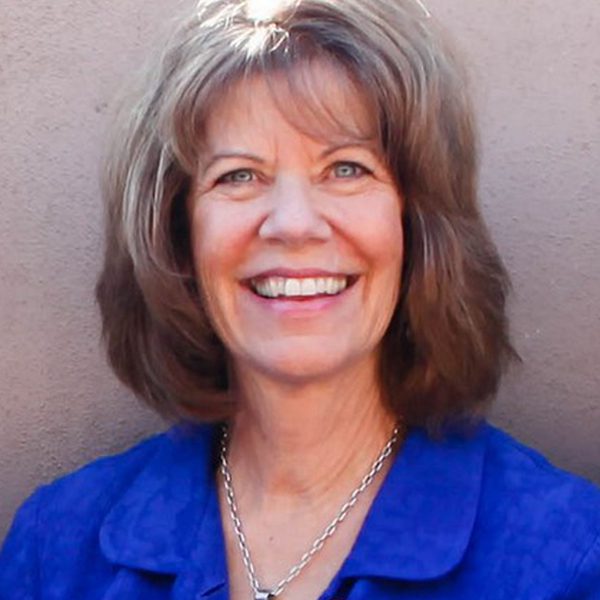
by Mindy Griffith | Sep 7, 2021 | Podcasts

Hear from Bag It Founder, Sherri Romanoski, as she shares with Impact Gap the importance of patient-physician communication, being your own advocate, and survivorship. Impact Gap is a graduate student-run, patient-centered podcast group at the University of Toronto. Their mission is to provide a platform to amplify patient perspectives, acknowledge patients as experts in their care, and raise awareness for important patient issues.
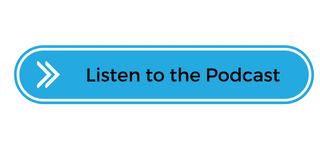

by Mindy Griffith | Aug 30, 2021 | Podcasts
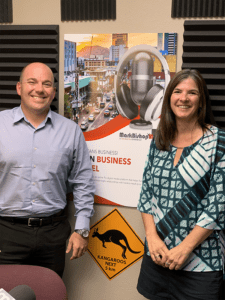 Listen to a conversation between Bag It Executive Director, Mindy Griffith and Matt Nelson, about Bag It’s purpose and what it means to have an organizational mission. They will discuss how that relates to workplace culture on his podcast Culture @ Work. Culture @ Work focuses on learning from and celebrating the local leaders, businesses, and non-profit organizations who’ve stood the test of Tucson time.
Listen to a conversation between Bag It Executive Director, Mindy Griffith and Matt Nelson, about Bag It’s purpose and what it means to have an organizational mission. They will discuss how that relates to workplace culture on his podcast Culture @ Work. Culture @ Work focuses on learning from and celebrating the local leaders, businesses, and non-profit organizations who’ve stood the test of Tucson time.

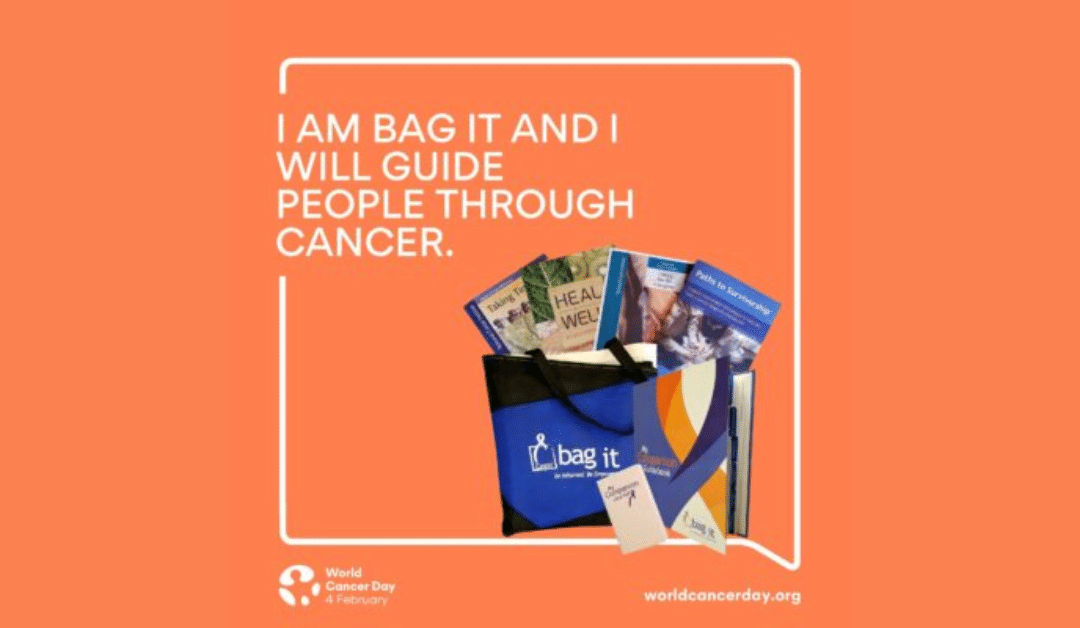
by Mindy Griffith | Feb 3, 2021 | Events

February is a busy month! We honor love, Martin Luther King Jr., Black history, and even our American presidents, but did you know that World Cancer Day also falls in February? The Union for International Cancer Control (UICC) leads the charge in urging everyone to take steps to ensure that preventable cancer deaths are reduced and that there is increased access to life-saving treatments for all patients, “no matter who you are or where you live”. Each year, the UICC establishes a theme for their initiative to shape the many activities and events that kick off around the world each February. This year, the theme is “I Am and I Will” – a call to action to commit and act on steps to get screened and share knowledge in hopes of reducing the number of cancer-related deaths and noncommunicable diseases by one third by 2030 (that’s only 9 years away, so let’s get to it!)
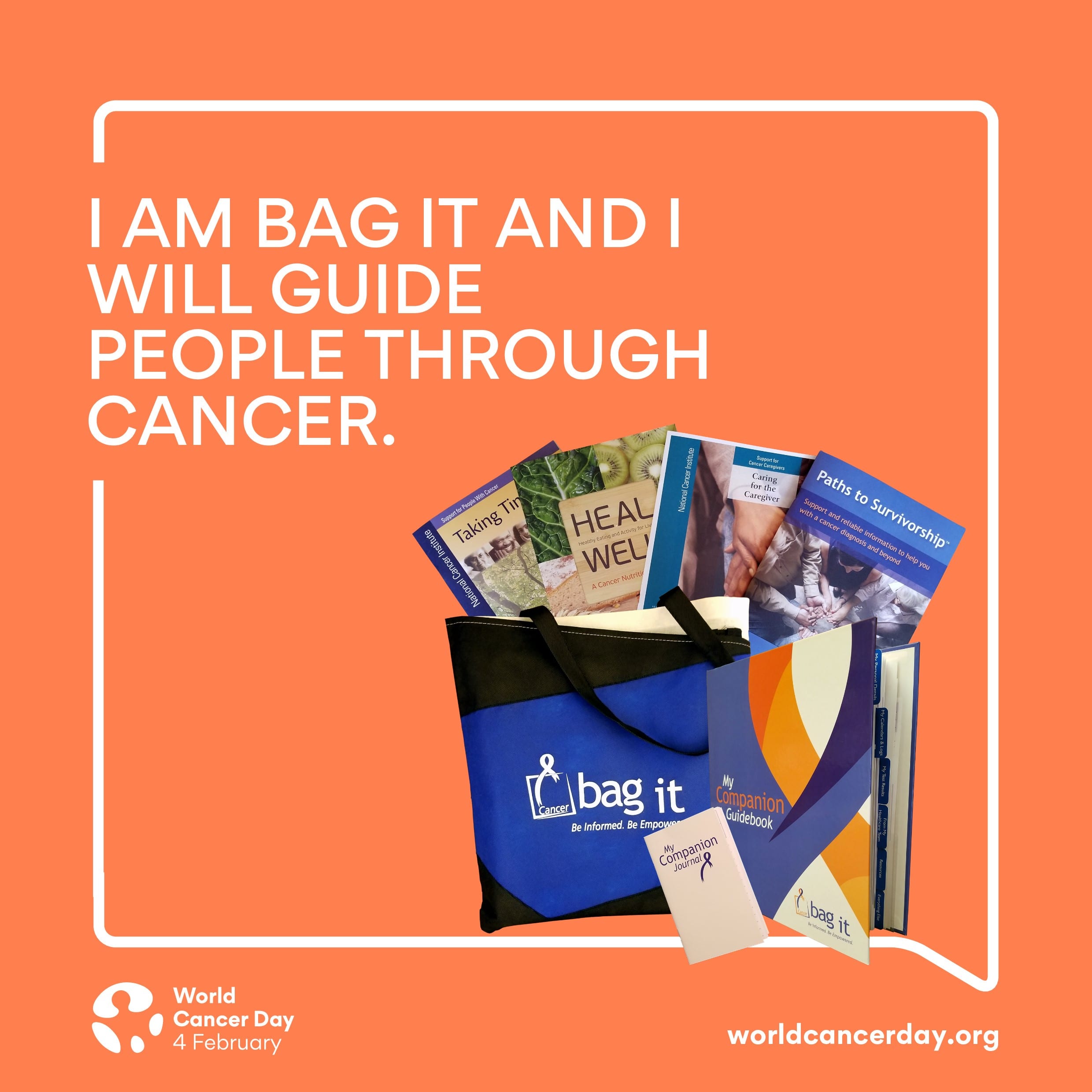
Bag It is aligned with the UICC by providing resources to educate and support patients through their healthcare plan, increasing access to life-saving information regardless of one’s ethnicity or socio-economic background. Bag It provides the tools you need to help you feel more comfortable and confident in speaking up for yourself to ensure the best quality of life with cancer. The contents in the bag are designed to help you and your caregiver(s) cope with the diagnosis, get yourself organized and better understand the language of cancer.
February is cancer prevention month, and we encourage you to think about ways that you can help yourself and others prevent cancer. It’s the perfect time to schedule appointments for you and your loved ones because adhering to the recommended screenings for breast, cervical, colorectal (colon) and lung cancers can lead to early stage diagnosis, which increases the likelihood of treatment working.
What action will you take as we kick off World Cancer Day? Take the 21-Day challenge to learn more about cancer and how to reduce your cancer risks. Some suggestions:
As part of my campaign I participated in the World Cancer Day 21-Day Challenge which was informative and easy and I wrote this blog: I will schedule my mammogram (and a colonoscopy this year) and encourage people to schedule their appointments, and I will work to ensure that everyone diagnosed with cancer receives a Bag It bag to help them cope with their diagnosis and feel comfortable and confident speaking up to ensure they are living their best life with cancer.
Sending positive vibes your way,
Mindy
Preventcancer.org recommends these seven steps to help prevent cancer.
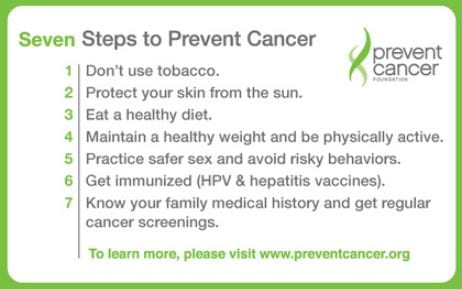
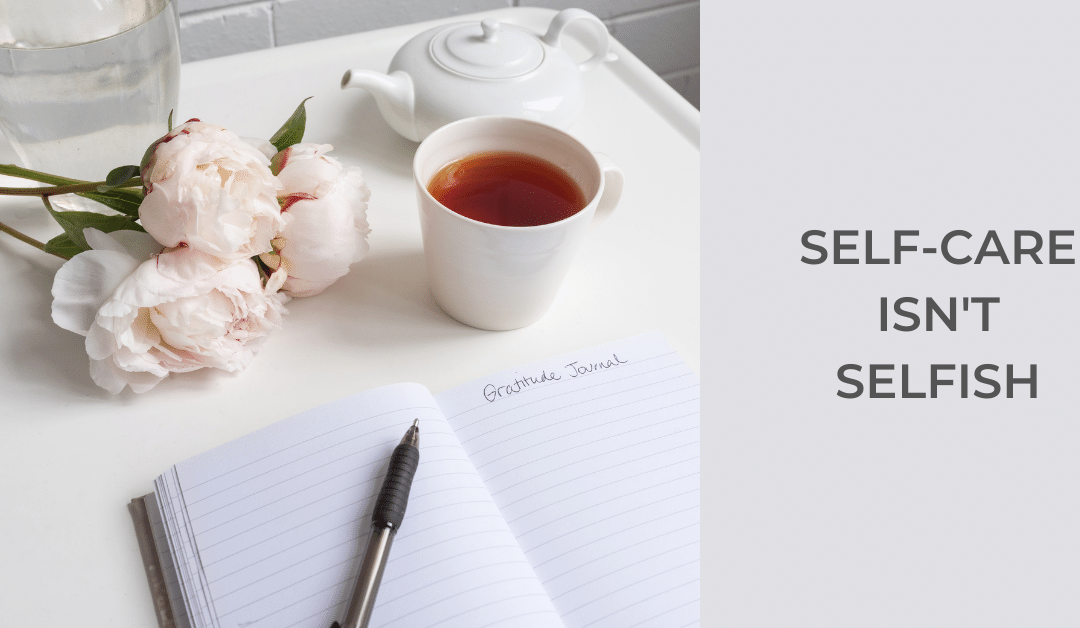
by Bag It Team | Oct 13, 2020 | Educational Articles
So, how are you?
 Let’s face it, months into life during a pandemic, everyone is struggling on some level. A Kaiser poll indicated that over 50% of Americans report that the pandemic and social-distancing are affecting their mental health. More people report that they are experiencing depression and anxiety. Emergency hotlines have noted over a 1000% increase in calls in comparison to 2019. If you need help, please get help.
Let’s face it, months into life during a pandemic, everyone is struggling on some level. A Kaiser poll indicated that over 50% of Americans report that the pandemic and social-distancing are affecting their mental health. More people report that they are experiencing depression and anxiety. Emergency hotlines have noted over a 1000% increase in calls in comparison to 2019. If you need help, please get help.
According to the Centers for Disease Control and Prevention (CDC), the COVID-19 pandemic can cause strong feelings of stress for adults and children, including:
- Fear & worry about your own health & the health of your loved ones
- Changes in sleep or eating patterns
- Difficulty sleeping or concentrating
- Worsening of chronic physical health problems
- Worsening of mental health conditions
If you’re experiencing any of these, there are ways to manage your symptoms and cope while maintaining physical distancing.
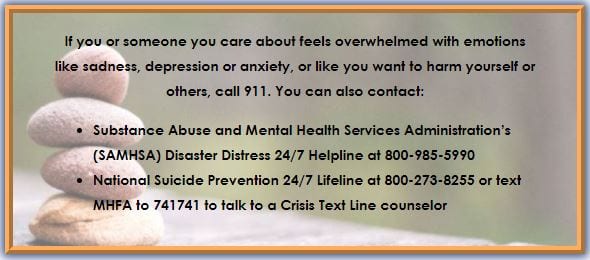
Continued from Newsletter…
 The National Alliance on Mental Illness (NAMI) offers several steps you can take to prevent this stressful time from impacting your mental health.
The National Alliance on Mental Illness (NAMI) offers several steps you can take to prevent this stressful time from impacting your mental health.
1) Maintain A Routine
If you’re not used to working from home, you may find the transition challenging. Creating a new teleworking routine will help you get into the right mindset, feel more productive and keep the boundaries between work and home from blurring. Bringing structure into your daily routine is key.
2) Take Reasonable Safety Precautions, But Don’t Go Overboard
Use only reliable sources of information, such as the CDC or Johns Hopkins University, to inform and make a plan for your health habits. Don’t let anxiety direct your behavior. Limit how much time you spend watching or listening to news that makes you upset.
3) Find Ways To “Get Going”
Now more than ever, you need to practice self-care. Practicing sound mental hygiene can help boost your psychological immunity. If you are prone to depression, you might be finding it harder to get out of bed in the morning, motivate yourself to accomplish chores or get started on a work project.
4) Try Not To Fixate On Sleep
The changes in your usual schedule, together with anxiety, can wreak havoc on your sleep. It might be helpful to listen to a guided meditation available on YouTube or one of the many meditation apps, such as 10% Happier, Headspace or the UCLA Center for Mindfulness
5) Stick To Consistent Meal Times
Eating only at meal times, rather than stress-snacking throughout the day, can also help you maintain your mental and physical wellbeing. Nourish yourself with healthy foods. However, it’s also perfectly fine to enjoy some comfort foods, like freshly baked cookies. Now is not the time to start a restrictive diet.
6) Follow Your Regular Mental Health Treatment Plan
Make sure you have an adequate supply of medication and take it as prescribed. Many mental health providers are now offering tele-therapy, either by phone or video, to comply with social distancing requirements. If you are dealing with cancer or a chronic illness, please keep connected to your healthcare provider by virtual visits or in person if safety permits (Bag It). Check with your insurer to see what virtual services they will cover.
7) Practice Mindfulness And Acceptance Techniques
 Whether you use meditation, yoga or prayer, focusing your attention on the present moment, rather than worrying about a catastrophic, uncertain future, can help you manage your distress. One good introductory resource, among many, is “Mindfulness: An Eight-Week Plan for Finding Peace in a Frantic World,” by Mark Williams and Danny Penman. The UCSD Center for Mindfulness also has free, guided meditations and useful information about the practice.
Whether you use meditation, yoga or prayer, focusing your attention on the present moment, rather than worrying about a catastrophic, uncertain future, can help you manage your distress. One good introductory resource, among many, is “Mindfulness: An Eight-Week Plan for Finding Peace in a Frantic World,” by Mark Williams and Danny Penman. The UCSD Center for Mindfulness also has free, guided meditations and useful information about the practice.
8) Be Kind To Yourself
A vast body of research conducted by the psychologist Kristin Neff and colleagues has shown the value of self-compassion for coping with emotional challenges and adversity. To ease feelings of isolation, acknowledge your struggle with kindness, rather than self-judgment, and recognize that millions of people world-wide are sharing your experience right now.
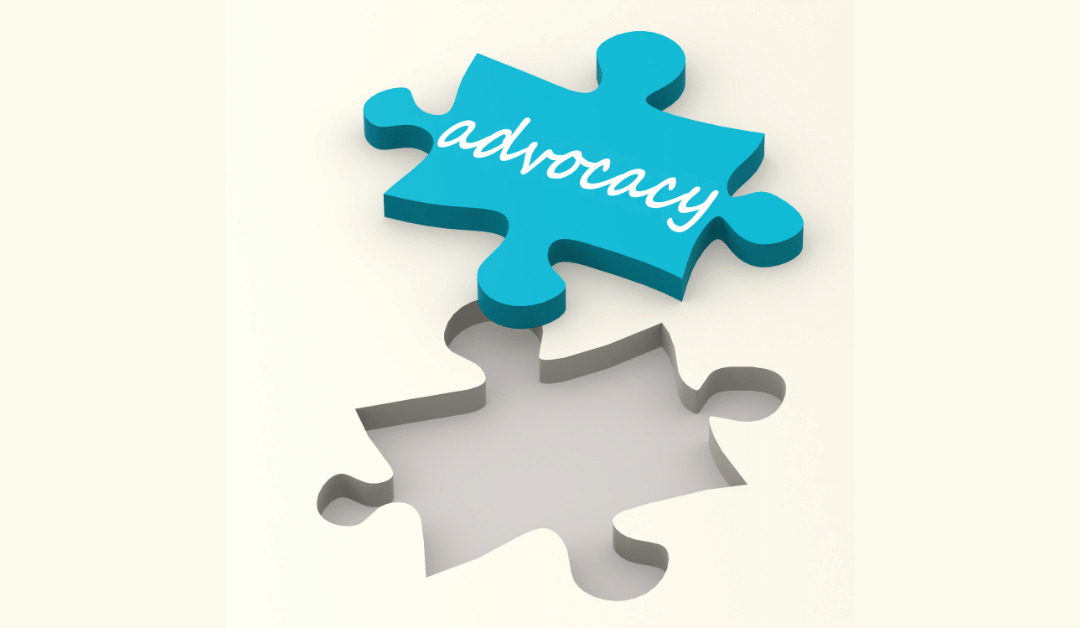
by Mindy Griffith | Oct 9, 2020 | Presentations
Presented by Mindy Grifitth for A Cure In Sight’s Eye Believe Survivorship Seminar.
For this seminar Mindy presented on how to be your own best advocate, as your healthcare starts with you. Watch the video to learn some tips to feel more comfortable sharing your needs with your healthcare team, why you should speak up for yourself and how and why to have a care plan.
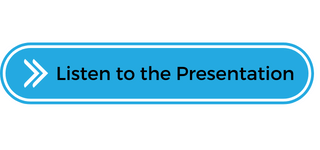





 Listen to a conversation between Bag It Executive Director, Mindy Griffith and Matt Nelson, about Bag It’s purpose and what it means to have an organizational mission. They will discuss how that relates to workplace culture on his podcast Culture @ Work.
Listen to a conversation between Bag It Executive Director, Mindy Griffith and Matt Nelson, about Bag It’s purpose and what it means to have an organizational mission. They will discuss how that relates to workplace culture on his podcast Culture @ Work. 




 Let’s face it, months into life during a pandemic, everyone is struggling on some level. A Kaiser poll indicated that over 50% of Americans report that the pandemic and social-distancing are affecting their mental health. More people report that they are experiencing depression and anxiety. Emergency hotlines have noted over a 1000% increase in calls in comparison to 2019. If you need help, please get help.
Let’s face it, months into life during a pandemic, everyone is struggling on some level. A Kaiser poll indicated that over 50% of Americans report that the pandemic and social-distancing are affecting their mental health. More people report that they are experiencing depression and anxiety. Emergency hotlines have noted over a 1000% increase in calls in comparison to 2019. If you need help, please get help.
 The
The  Whether you use meditation, yoga or prayer, focusing your attention on the present moment, rather than worrying about a catastrophic, uncertain future, can help you manage your distress. One good introductory resource, among many, is “Mindfulness: An Eight-Week Plan for Finding Peace in a Frantic World,” by Mark Williams and Danny Penman. The
Whether you use meditation, yoga or prayer, focusing your attention on the present moment, rather than worrying about a catastrophic, uncertain future, can help you manage your distress. One good introductory resource, among many, is “Mindfulness: An Eight-Week Plan for Finding Peace in a Frantic World,” by Mark Williams and Danny Penman. The 

Recent Comments